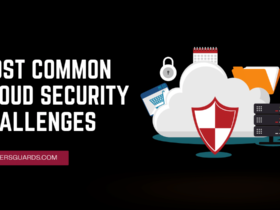What is a CDN?
A content delivery network ( CDN) is a geographically distributed group of servers that work together to deliver Internet content quickly. It helps to migrate assets required for Internet content loading quickly including HTML pages, javascript files, stylesheets, videos , and images. With CDN services increasingly popular, most web traffic is currently served via CDNs, including traffic from major sites such as Netflix, Amazon , and Facebook.
How is a CDN working?
Servers closest to visitors to the website respond to the request. The CDN transfers the website pages to a server network which is spread at geographically different locations, storing the page content. When a user requests a website that is part of a CDN, the CDN goes ahead and redirects the request from the server of the originating site to a server in the CDN that is nearest to the user and delivers the cached content. Additionally, CDNs will also communicate with the originating server to deliver any content not previously cached. The entire bouncing cycle via CDNs is basically transparent to the user. The only way a user would get to know if a CDN has been accessed is to note that the shipped URL is different than the requested URL.
Top 4 Key Benefits of Using CDN (Content Delivery Network)
Typically speaking, the benefits of using a CDN vary in terms of the size and specifications of an Internet domain, and therefore the most basic benefits for most users can be divided into four main components:
Reduce cost of bandwidth
The cost of website hosting bandwidth usage is considered a primary expense for websites. CDNs are capable of reducing the amount of data that an origin server is responsible for delivering by caching and many other improvements, thereby reducing the hosting costs for website owners.
Raising the quality and reliability of content
The normal functioning of a website can be interrupted by huge amounts of traffic or hardware failures. The distributed design of a CDN enables it to manage more traffic and to better avoid hardware failure than other servers of origin.
Improve load times on website
Using a nearby CDN server, users can experience quicker page loading times while delivering material that is closer to website visitors. Given that users are more likely to move away from a slow-loading site, a CDN will reduce bounce levels and increase the amount of time people spend on the web. It refers to the fact that a quicker website means there will be more people hanging around for a longer period.
Improving security on websites
A CDN can also enhance Web security by upgrading security certificates, minimizing DDoS, and other improvements.
Now let’s take a look at what you can gain from Fixhackedwebsite Secure Content Delivery Network ( CDN), with this brief introduction to CDNs and their benefits. This CDN is part of Fixhackedwebsite security: a Secure Content Delivery Network (CDN) Managed Security Service for websites and web applications that incorporates a Web Application Firewall ( WAF). It is a fully managed solution from a certified security analysts 24x7x365 staffed Cyber Security Operation Center (CSOC) and is powered by a Security Information and Event Management (SIEM) capable of leveraging data from over 85 million endpoints to detect and mitigate threats even before they occur. This Fixhackedwebsite security tool also provides malware scanning, preventive methods, and removal services that allow organizations to take a proactive approach to protecting their business and brand reputation from infections and attacks. Fixhackedwebsite also provides vulnerability testing to include online retailers, companies and other service providers that manage electronic payment cards in an automated and easy manner to stay in compliance with the Payment Card Industry Data Security Standard ( PCI DSS).
The Fixhackedwebsite CDN Provides the following benefits: [Actualized 2020]
Security: This Fixhackedwebsite CDN is considered the first security-built cloud service platform with a protected machine learning core that aggregates, analyses and syndicates data on real-time threats to and from each of its secure services.
Quicker speeds: Online data was copied to 29 places worldwide to ensure the data has shorter distances to reach a customer irrespective of where they are and to have a quicker experience. For example , a person living in Europe would load data from a European-based CDN node, even though the web site is hosted on a US server.
Saving money: Uses compression and web caching technologies to save costs and use on bandwidth.
Content protection: By implementing versatile key and proxy authentication, you would be able to secure “premium / paid” content and avoid hot-linking.
SEO rewards: Search engines reward websites which use CDN with higher search results rankings.
High availability: With the CDN being capable of serving content, traffic can be automatically scaled up and down with almost unlimited power. In turn, unpredicted traffic spikes will no longer pose a challenge to the processor, as it will be able to maintain speed and maximum performance under difficult conditions.
















Leave a Reply